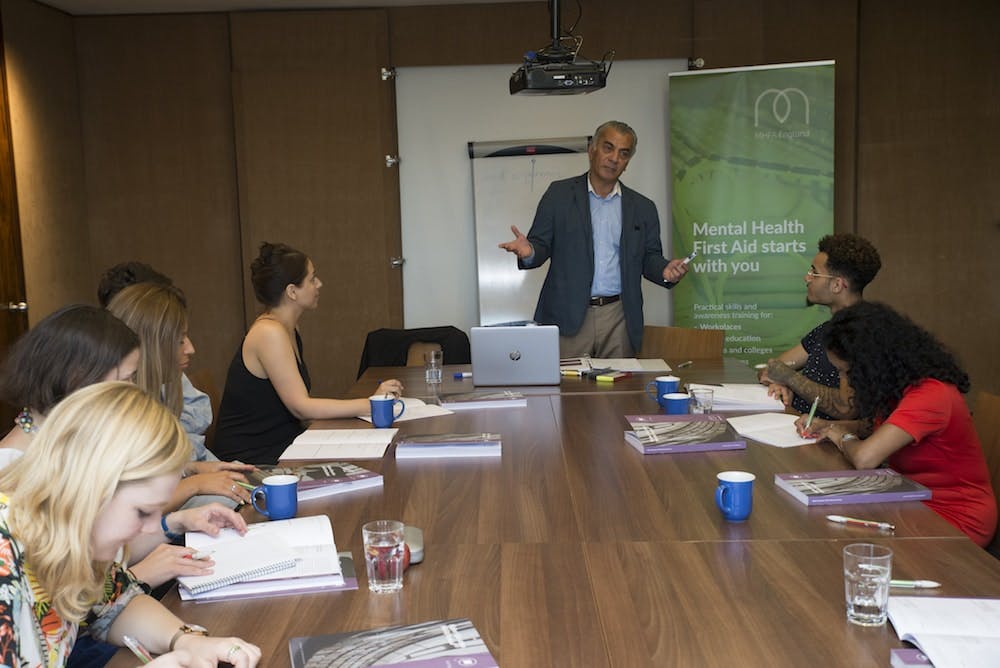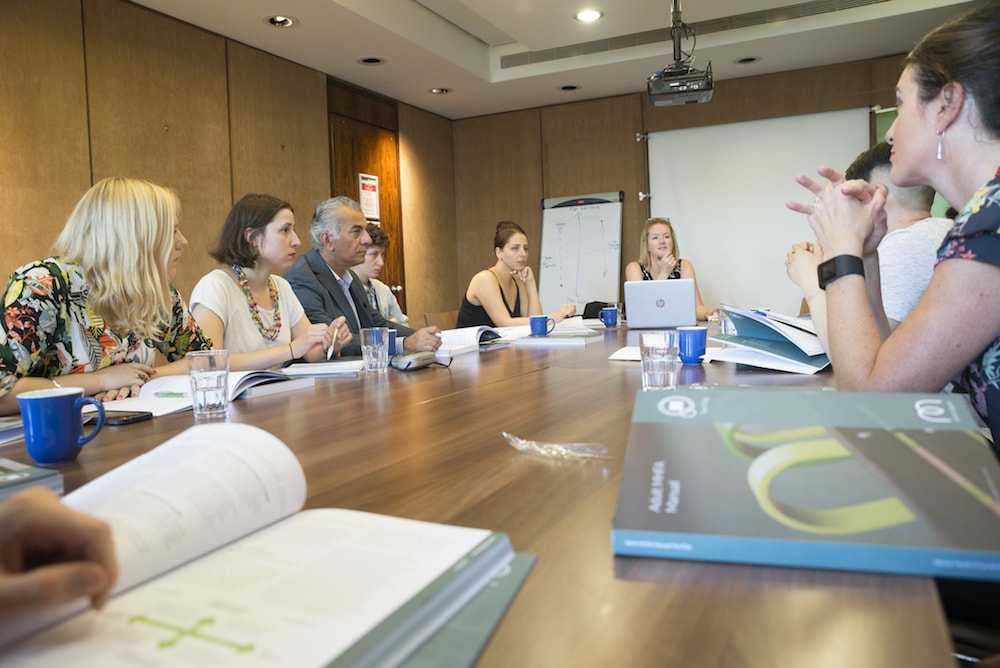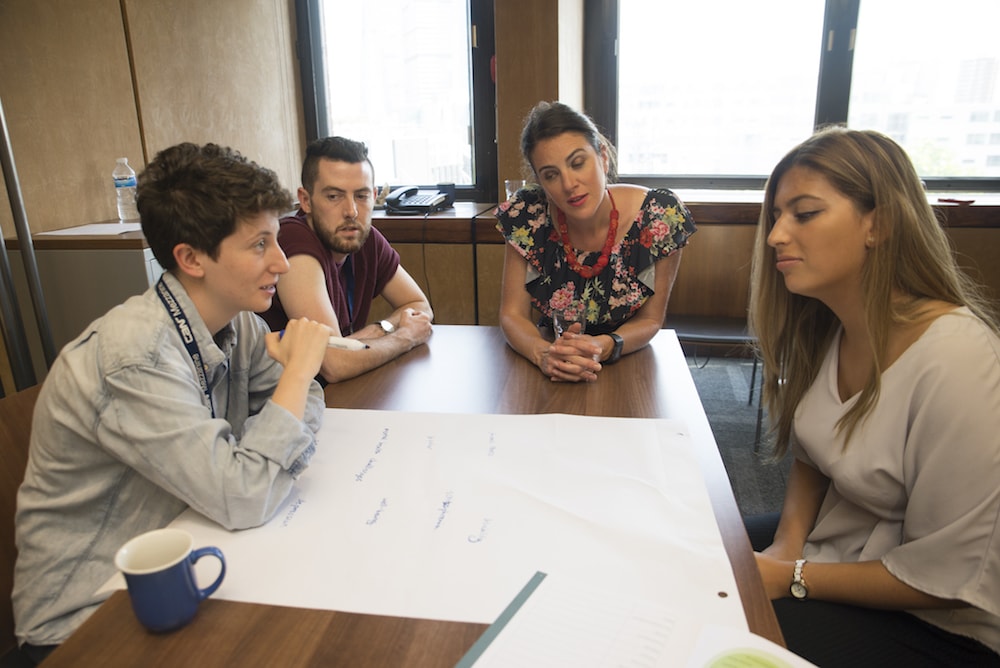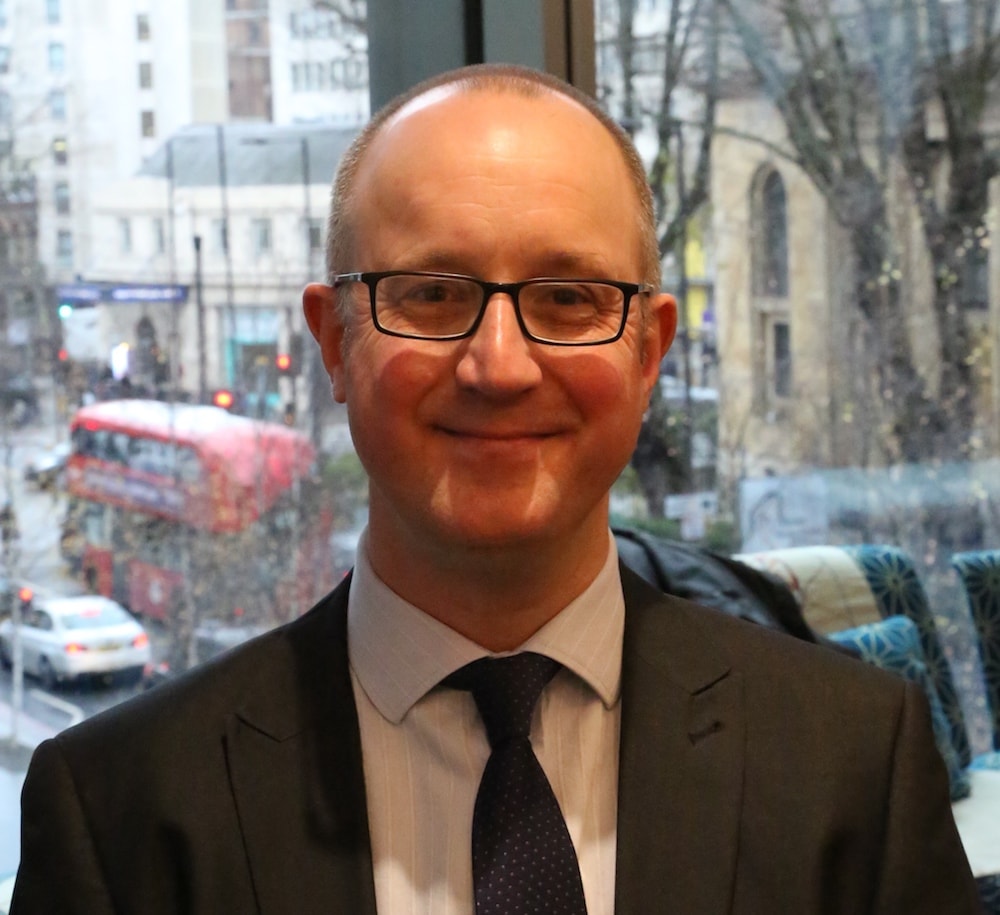
Wellbeing in the workplace: a task we can – and must – all take seriously. And fortunately for us, Mental Health First Aid England is doing just that with their mission to ensure we take better care of ourselves, and our colleagues
Staff in health institutions have mandatory training on which coloured extinguisher to use on certain fires, but for guidance on how to compassionately help a colleague struggling with their mental health? Look further.
That is not to downplay the dangers of fire, but when the blaze gets out of control inside a member of your team at work, where do we turn? How can we spot the warning signs that a colleague is in trouble? What indeed are the signs?

Enter the firefighters performing the frontline training: Mental Health First Aid England (MHFA). More than a quarter of a million of us have already benefited from their unique insight. And crucially, nearly 2,000 of us are out there passing the message on.
That’s right, MHFA’s aim is to not only equip us with the tools we need, but also for us to use them. Simply put, it’s the mental counterpart to the array of physical first aid training out there.
How did MHFA training start?
MHFA England’s roots are a world away from the position it finds itself today. In 2007, officials within the Department of Health were asked to investigate the roll-out of a mental health training package across England. It sought inspiration from a first aid movement pioneered in Australia in 2000, that was also being implemented across Scotland.
A surge in popularity saw it set up solid foundations, and Mental Health First Aid was registered as a social enterprise in 2009.
Caroline Hounsell, youth lead and director of partnerships, product development and training at MHFA England, turns the clock back to when such grandeur was a pipe dream. “Only 10 years ago, MHFA England was just three people sharing a desk, with a handful of instructors scattered over the country,” she says. “Now we have a flourishing network of more than 1,800 instructors, training an average of 6,000 people every month, with a central team of nearly 50 people.

“This is helping us to bring MHFA to more and more communities all over England, breaking stigma, and empowering everyone to be able to talk about mental health and mental illness.”
Why is MHFA training needed?
Around 12.5 million working days are “lost” each year in the UK due to work-related ill health. While physical injuries account for an average of 9.1 days off per person, the majority of working days lost by far is due to stress, depression or anxiety – accounting for an average of 23.8 days per person.
First things first, and most importantly, you are entitled to take days off for your mental health and you should use them when needed. But just think how many days will be saved, if you or a colleague can spot when somebody at work is in danger of burning out, risks doing some serious damage to their mental health? Even just having a mental health first aider in the office can reassure employees that their mental health is being taken seriously by their managers.
Gaining momentum
Wellbeing in the workplace was at the heart of Madalyn Parker’s out of office message back in July 2017. The US web developer’s message went viral, and her boss’s response travelled just as far.
Madalyn wrote: “I’m taking today and tomorrow to focus on my mental health. Hopefully I’ll be back next week refreshed and back to 100%.”
She received a prompt reply from her company’s CEO, Ben Congleton, who thanked her for “sending emails like this”.
He continued: “Every time you do, I use it as a reminder of the importance of using sick days for mental health – I can’t believe this is not standard practice at all organisations. You are an example to us all.”
Caroline acknowledges this is the scenario they want played out in all workplaces.
She says: “Granted not every employer would react as effusively, but if we continue to normalise the idea that sick leave is for our whole health, not just physical health, then we can create workplaces that are more open and accepting.”

The fact is, mental ill health is not uncommon, and given the average person will spend more than 90,000 hours of their life at work, it’s natural that just as our physical health can impact our ability to work, so can our mental health.
To address this, Caroline says: “Having someone trained in Mental Health First Aid in every workplace is one key part of supporting this culture change, but leaders also have an important role to play in setting the tone from the very top.”
So, how does the future look?
If “one in four” continues to be the big mental health statistic, “one in 10” is the one MHFA hopes will play a crucial role in its future. It means some 5 million people could be taught in the ways of MH First Aid.
Caroline says: “Our overall aim is to train one in 10 of the English population, to create a cultural tipping point where awareness of mental health is equal to that of physical health – thereby driving
real change.
“We know there’s a long way to go, but culturally there is already a noticeable shift in attitudes, and we’ve seen the number of people trained in MHFA skills double over the last two years.
As part of MHFA’s social mission, Caroline notes that they want every workplace to include mental health in their first aid provision, with trained first aiders matching the number of physical first aiders.
Paul Hay, 49, Environment, Health and Safety Training Manager at construction and project management company Lendlease, did his MHFA training in July 2015:
“We started our mental health programme four years ago. At the time, construction was a little behind the curve in terms of attitudes to mental health. My ex-boss, who was involved with Rugby League, got the ball rolling on this.

Paul Hay
“We established that construction had the highest suicide rate of any profession in the UK, and nobody talked about it as an issue. It’s a profession mostly occupied by men, and we all know about men not talking.
“I was blown away by the impact it had on me, and it changed the mindset I had towards the issue – my own personal wellbeing, that of my colleagues and friends.
“Over the past four years, we’ve put around 350 people through the two-day course, and about a third of those are active mental health first aiders within the business.
“How can we prove what we’re doing is working? I can sense a culture change, in terms of the training take-up and the awareness sessions – we can’t put enough on. Just walking around the office, you hear ‘mental health’ in conversations.”
Pushing for parity
With their vision to see parity between physical and mental health figures, it’s worth noting that you can expect to shell out £279 for a three-day course to become a physical first aider at work, which is undoubtedly worth every penny.
While the current cost of training a MHFA instructor (who can train others in a variety of courses) is a hefty £2,325 excl. VAT, the cost to become a mental health first aider who can support colleagues within a business is far closer to the physical first aider cost at £300 excl. VAT.
But in reality, knowing that we have the chance to push mental health safety at work to the top of the agenda alongside physical health, that is priceless.
Happiful is excited to offer our readers access to our specially commissioned MHFA training courses, provided by our partner Simpila Healthy Solutions, where you can become a qualified mental health first aider. Click here for more details.
To find out more about MHFA England and its training courses visit mhfaengland.org

